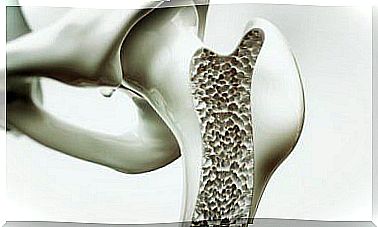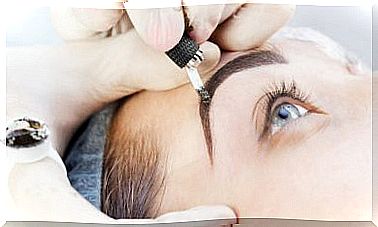6 Weird Effects Of Anxiety
Some common day-to-day activities like public speaking, taking an exam, or going through a difficult time at work, can trigger symptoms related to stress and anxiety.
Although the effects of this mental state are known to many people, and those who suffer from it tend to identify them easily, there are others, not so well known, that can be confused with other conditions. We detail them below.
Rare effects of anxiety
High levels of anxiety can have a negative impact on health, not only mental but also physical, especially if it is maintained over time and is not treated or treated properly.
According to a study in Frontiers in Human Neuroscience , anxiety could affect both the ability to concentrate and the ability to react quickly to dangers.
However, there are some rare effects of this condition that do not occur in everyone, but that you need to know in order to identify them.
1. Ringing in the ears
Tinnitus is a high-pitched noise or buzzing in the ears, which is perceived more intensely when there are no external sounds to disguise it. This discomfort can occur in one or both ears, and its tone can vary.
This condition is attributed to different factors but, according to a review published in Science Direct , it would also be related to high levels of anxiety. Therefore, it is believed that its detection and proper treatment could have positive effects in reducing tinnitus.

2. Gas and bloating
Although these symptoms are attributed to other factors, in some cases they could also be another of the rare effects of anxiety.
A publication from the Anxiety and Depression Association of America notes that people who suffer from anxiety and have irritable bowel syndrome, a condition characterized by gas, bloating, stomach pain, and sometimes diarrhea, could be more prone to these symptoms getting worse.
3. Hormonal problems
Anxiety and stress can affect the body in different ways, one of which is the negative impact on the endocrine system, which is a set of glands that make and release hormones in the body.
According to a review published in the Indian Journal of Endocrinology and Metabolism , long-term exposure to these conditions can negatively affect some hormones that are important for the proper functioning of the body, such as growth hormone, prolactin, among other
4. Skin rashes
Although acne around the nose, forehead, or cheeks is quite common, these rashes can also be symptoms of anxiety.
In relation to this, doctors Ying Chen and John Lyga, in a review published in Inflammation and Allergy Drug Targets , comment that there is a direct link between emotions, inflammations and skin aging.
5. Hair loss
Anxiety has a direct impact on the entire body, including nails, skin, and hair. Even if Hair loss is not a typical sign, it is another of the rare possible effects of anxiety.
As a Mayo Clinic publication comments, this condition, at high levels, could be related to these three different types of hair loss:
- Telogen effluvium. The hair follicles enter a resting phase, as a result of this condition, and the hair falls out after a few months when combing or washing the hair.
- Trichotillomania. With the onset of this condition, the person pulls their hair due to stress, frustration or tension.
- Alopecia areata. Stress and anxiety can cause this condition, in which the immune system attacks the hair follicles.
These episodes are not permanent if stress and anxiety levels are controlled. However, it is important to consult with your doctor if they do not subside or become severe.

6. Yawn more than necessary
Although there is no scientific evidence why we yawn, it is said to be a reflex of the body to increase blood flow and become alert.
Now, a review published in the International Journal of Applied Basic Medical Research suggests that people with different clinical symptoms such as migraine, epilepsy, stress, anxiety, among others, could experience episodes of excessive yawning.
This is because these people have an increase in body temperature, which causes abnormal thermoregulation to be generated, which is corrected by yawning.
When to seek help?
Anxiety is a normal response of the body, which allows it to react to different stimuli and its symptoms vary according to the specific case of each person.
However, when the duration of this is extended and its levels increase, it is necessary to consult a psychologist or mental health professional for a proper assessment and treatment.









